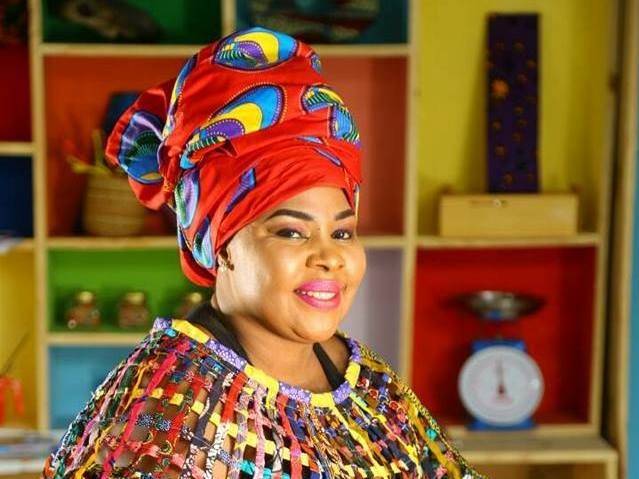
Hitmaker of “Chambua Kama Karanga,” Saida Karoli, regrets wasting money
Many East Africans associate Saida Karoli with the timeless classic song “Chambua Kama Karanga” from the early 2000s.
With the single and album, Saida debuted on the local scene in 2001 and claims to have peaked in 2003.
Millions of dollars and Tanzanian shillings arrived with it.
Her album’s song “Maria Salome” was deemed good enough to be on the soundtrack for the movie Peeples, even by well-known American director Tyler Perry.
When I met Saida today, the 48-year-old musician was hardly the same person.
The six-mother is having trouble making a musical comeback that has been rocky at times.
In a recent speech in her hometown of Bukoba, where she withdrew after events a few years ago, she attributed her current situation to naivety.
The folk music icon’s ascent to fame started when, at the age of 17, a scout took her from Bukoba to Dar es Salaam, the capital of Tanzania, the land of opportunity.
“I should be well off, with maybe ten or twenty houses to call my own in addition to numerous multimillion-dollar assets. I used to be a major star who made a ton of money, but now I just live a simple life,” Saida remarked.
As a young, unsuspecting artist, she now attributes her “downfall” to a lack of support and direction.
“I would be doing better than I am now if I had good guidance on investments,” she remarked solemnly. “Although I was young and orphaned, I made a lot of money and didn’t have an advisor to help me invest and better manage my money.” I regret that.
Saida continually finds someone to blame, even though she acknowledges that her original manager helped make her a star. She accuses herself, nevertheless.
“I would adore living the same kind of carefree lifestyle as Diamond Platinumz, but without any oversight.” Whenever I consider being under supervision, my heart rate increases. I much rather be an independent artist because I feel that I was somewhat taken advantage of by my former management, and I bear the responsibility for allowing them to do so.
Since I was inexperienced and naive, I allowed them to determine everything about me, including how much money I would receive. I never asked questions. I was ignorant about the industry, and to make matters worse, I had no one to provide me the critical advice on where to put my money. I’ve paid a high price for being so innocent,” she remarked.
Not long after the album’s debut track “Maria Salome” catapulted Saida to stardom, the song/album title “Chambua Kama Karanga” became an immediate hit.
With the help of her mesmerizing vocals and traditional instrumentals from her native Haya ethnic group, “Maria Salome” narrates a tragic love story.
Even though she has sung many of her records in Kiswahili and regional tongues, primarily to appeal to her fans in Tanzania, Kenya, Uganda, Rwanda, Burundi, and the Democratic Republic of the Congo, “Maria Salome” broke the mold to the point where renowned black American director Tyler Perry took notice.
The song “Maria Salome” describes the tragic fate of a lady who deserts her partner in quest of a better life, only to be murdered by her subsequent suitor. The song was so deep and fitting for a story of a troubled couple attempting to stay together that Perry paid to have it featured on one of the soundtracks for his movie Peeples, which starred Kerry Washington and Craig Robinson. At the box office, the movie brought in $9.3 million.
The amount of money Saida made from using it as a soundtrack is unknown.
The songbird’s passion for performing garnered her admirers throughout the region, and the album’s tremendous sales and sold-out stadiums during her performances were a dream come true for her.
However, her decline occurred rather more quickly than her ascent, and her attempts to make a comeback were characterized by false starts.
Saida had already been performing in the Bukoba villages when she was seventeen, when she was noticed by a manager. She had given birth to her first child at the age of thirteen, thus she was already a mother.
“Like any village girl, I was unsophisticated and lacked a good education, but I was a fantastic entertainer. He sent me to Dar es Salaam, where I started working for him and signed a contract, and he also helped me develop my brand,” the woman claimed.
The vibrant singer claimed that although she knew she was wealthy during her peak of fame, she was unsure of the precise amount she made as the management that signed her made all of the decisions.
“I was happy to get paid any amount for my music, whether it was Tsh500,000 ($185) or Tsh100,000 ($37). I performed in a lot of concerts, but I never bothered to find out how much those shows paid, so I can’t tell you. Looking back, all I can think of is regrets. I’m to blame. I shouldn’t have made assumptions; I should have known better,” Saida remarked.
Saida chooses 2003 as her career high point when recalling her glory days.
We performed live quite a bit in 2003. I recall receiving Tsh3 million ($1,111) from a show, followed by a Tsh4 million ($1,481) check from another engagement. During that season, I was frequently paid millions from single concerts, which was an increase in income from the hundreds of thousands I had been used to receiving at first. In those days, that was a lot of money. Before now, I had never handled this kind of money. He handed me a car after we completed a lengthy tour of ten performances.
Saida acknowledges abusing her wealth.
The musician claims that as her fame increased over time, she turned rebellious and had a falling out with her management.
“After the contract was terminated, life in Dar es Salaam became intolerable. After moving, I lived in Dar for ten years before returning to the hamlet with my kids, Saida said.
Saida claimed in a previous interview with The Citizen that after years of fame, her contract with FM Studios was terminated, and her entire life fell apart.
FM Studios created and owned a number of her songs, and they were paying her a retainer of Tsh300,000 ($111) every month. She disclosed in the interview that she had once gotten a check for Tsh7.5 million ($2,777) from the sales of her first album.
All Categories
Recent Posts
Tags
+13162306000
zoneyetu@yahoo.com


